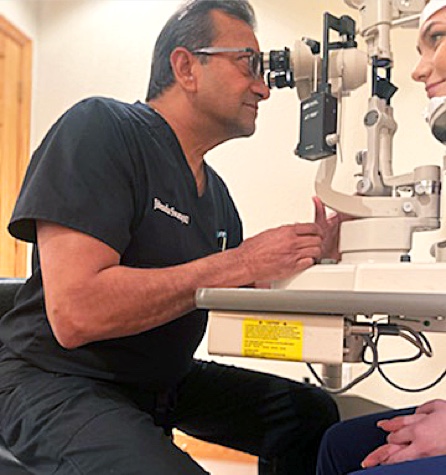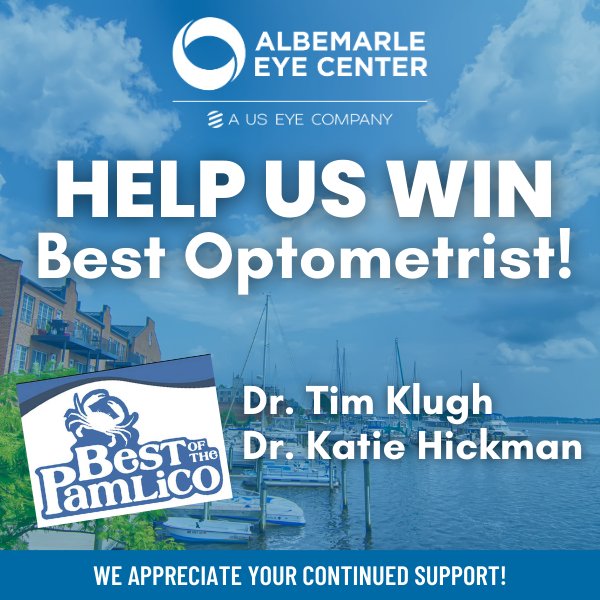What is Presbyopia?
The gradual loss of your eyes ability to focus on near objects is called presbyopia (pronounced prez-by-opia). It typically occurs as a person enters their 40’s making it one of the most common aging conditions of the eye. For some it is very annoying and can negatively impact their daily activities.
The primary reason this occurs is because the natural lens inside the eye becomes less flexible with time. This loss of flexibility reduces the eye’s ability to change focus both in terms of speed (changing focus from far away to up-close quickly) as well as overall focusing power (maintaining clarity on an object up close). Since the lens does not flex as well as it did, light is not focused properly on the retina (the lining on the back of the eye that absorbs light).
For most people, it is a gradual process that worsens over time, typically years. However, I have had a few patients over the years report it seemed to happen almost overnight.
There are several things that we do to compensate for these difficulties including increasing font size on screens, increasing ambient lighting and screen brightness as well as holding things farther away (or not so close). In addition, many patients turn to either over the counter reading glasses or change their distance prescription glasses to bifocal, trifocals, or progressive lenses.
Recent advances in managing presbyopia have revolved around lens implants and eyedrops. Lens implantation, typically at the time of cataract surgery, offers patients the ability to choose an implant that helps not only with distance vision but allows for an extended depth of focus with near tasks, including computer and reading.
Even more recently, the FDA approved the first eyedrop, VUITY® (Allergan) to help mitigate the effects of presbyopia on a patient’s daily activities. Studies show VUITY® can improve computer and reading ability with less dependency on glasses. Not every patient is a candidate for an implant or VUITY®, so it is best to consult with your eyecare provider during a comprehensive, dilated eye exam. More advances in eyedrops are expected in the coming years as more companies bring products to market.
Aging changes to the eye can be scary and negatively impact daily activities. With recent advances, and more to come, presbyopia is proving not to be as difficult to manage as in years gone by.
Written by Dr. Sean Smolenyak, Albemarle Eye Center (Edenton)
















